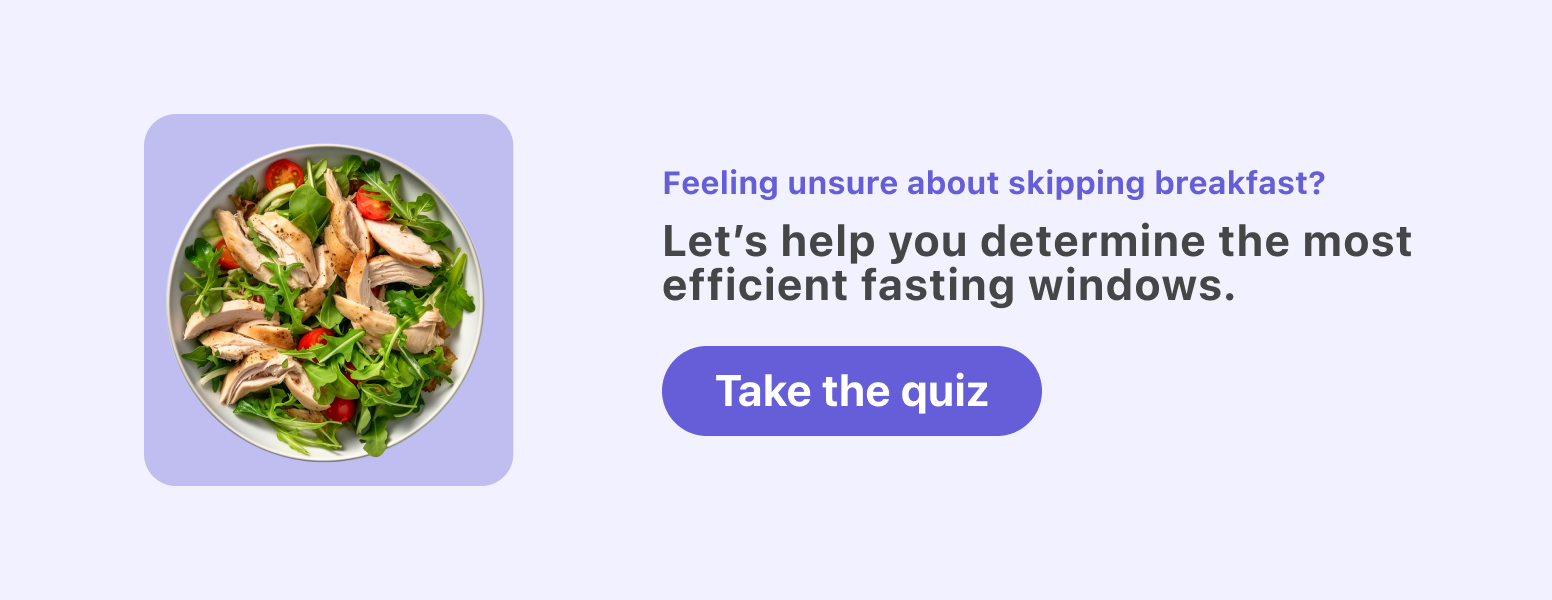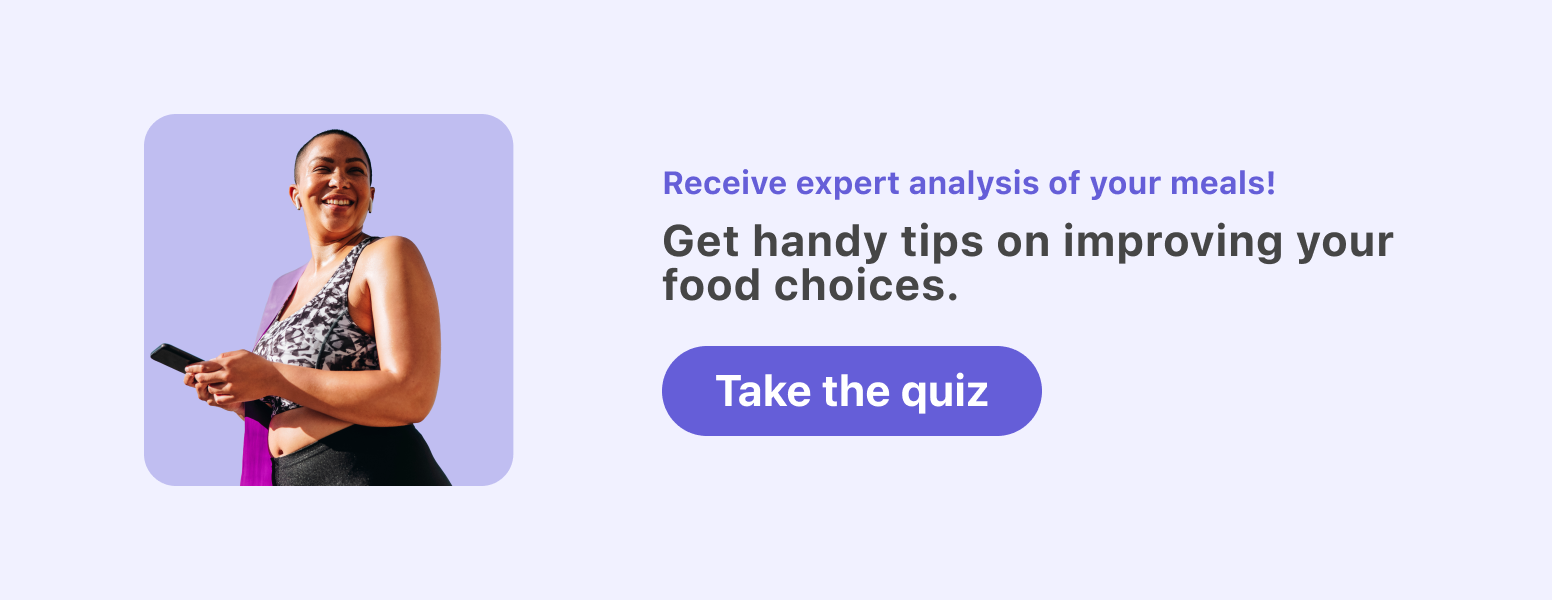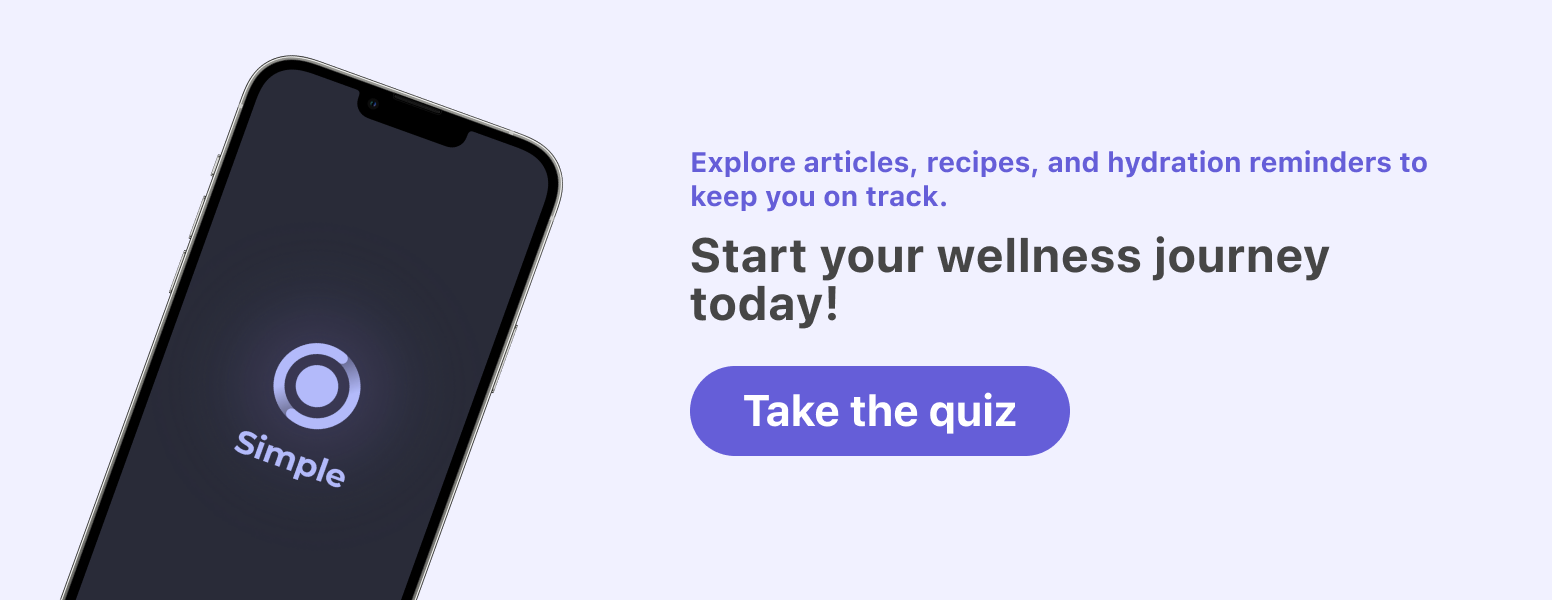Is it OK to skip breakfast?

“Breakfast is the most important meal of the day!”
Is that true?
Seems like a lot of pressure on breakfast, especially given that every meal is an opportunity to nourish our bodies with delicious and nutritious foods.[1]

Sure, one large analysis found that people who ate breakfast had lower rates of heart disease, diabetes, high blood pressure, cardiovascular issues like high blood pressure or strokes, or high cholesterol.[2]
But we don’t know if skipping breakfast caused this or if skipping breakfast was just part of an overall unhealthy lifestyle.
So, should you be worried? (Spoiler alert: we recommend never worrying or “shoulding” yourself about your nutrition — rather, just focus on making wise, mindful choices to take good care of yourself.)
The good news is that there are many ways to time your eating and fasting for good health and weight loss.
Depending on your intermittent fasting schedule, you might skip breakfast as part of your daily routine. Or a few times per week. Or never.
Let’s take a look at the pros and cons of skipping breakfast so you can decide whether it’s something you might try (or continue to enjoy if you already do it!).
Feeling unsure about skipping breakfast? Take our Simple quiz to find the perfect rhythm tailored to your lifestyle. Let’s help you determine the most efficient eating and fasting windows to boost your health.
How your circadian rhythm affects your metabolism
Our circadian rhythm is our daily cycle of sleeping and waking.
Emerging research suggests that our circadian rhythms organize most processes in our body, including our metabolism, blood sugar management, digestion, and appetite.[3,4,5]
So, by taking advantage of our circadian rhythms, we can align with our body’s natural timing to help ourselves stay healthy, regulate our metabolism, and lose weight more easily.[6]
Metabolically speaking, there does seem to be an advantage to eating the bulk of our food earlier in the day.[3,7]
But it doesn’t have to mean eating immediately after waking up.
If your goal is to lose weight, there’s limited evidence that eating breakfast magically “kickstarts” your metabolism or provides any special advantage for weight loss.[8]
Thankfully, your metabolism works just fine when you wake up in the morning. Otherwise, how could you function without reaching for a bite of food from the comfort of your bed?
Let’s look a closer look at the pros and cons of skipping breakfast.

The pros: when skipping breakfast might be helpful
You wake up in a fasted state
Let’s be honest — we all want fasting to be easy, right? And one of the best life hacks for fasting is to include those eight hours of sleeping, which means that all we have to worry about is a few extra hours of fasting while we’re awake.
After about 6–10 hours without food, we move into a fasted state.[9] This means our bodies shift from using whatever we ate in our last meal to using stored body fat for fuel.
Since you’re probably not eating while you sleep (or so we hope), by the time you wake up, you’re likely in a fasted state.
Assuming you’ve had at least eight hours of sleep, morning time is the most fasted you’ll be all day. Insulin sensitivity is at its highest, and your glycogen levels are at their lowest in this fasted state.[10]
Cool — now you can take advantage of this!
Overnight, you don’t have to deal with hunger or boredom. If you eat an early dinner and skip or delay your breakfast until 10 AM or later, you can quickly meet the requirements of a 14- to 16-hour fasting window.
When you extend your morning fasting window a bit longer, you can increase the benefits of fasting, which extend beyond weight loss.
You’re naturally not hungry in the morning
Say “big breakfast” to some people, and they’ll make a “yuck” face. For some folks, early morning eating is just … gross. Their bodies do not want food in there first thing.
If that’s you, the good news is you can just vibe with your body’s natural preferences and eat later in the morning or around noon when you feel ready.
You do low-intensity exercise early in the morning

Love those sunrise walks or yoga practices? Then skipping breakfast and doing them fasted might be ideal for you.
If weight loss is your goal, the morning hours are a convenient time to add exercise to your daily routine. When you forgo breakfast, you’ll have extra free time in the morning.
And some research links exercising while fasted — particularly low-intensity, relatively easy exercise like walking — with helping you burn more fat, improve your response to insulin, and lower your risk of diabetes and heart disease.[11,12,13]
You have shared meals or social events later
Maybe the only time you can share a meal with your partner is later in the evening after you both get home from work. Maybe you have a fabulous evening party to attend.
Whatever it is, you might have times when you want to eat later.
Starting your eating window later in the day by eliminating a morning meal gives you that flexibility. When you pass on breakfast, you can enjoy social time with friends and still stick to your intermittent fasting schedule.
Just make sure your nighttime meals are nutritious, and don’t eat too late.
You want to eliminate a daily meal
Intermittent fasting is a simple idea: often, it just means eliminating 1–2 meals at the start or end of the day.
And, to lose weight, we have to eat less energy (i.e., fewer calories) than we burn. Dropping a meal out of the daily roster is a simple way to do this.
If you don’t care that much about breakfast, feel free to put it on the chopping block. But be sure to make up for that lost meal by making your other meals as balanced as possible with a good amount of lean proteins (e.g., chicken, fish, eggs, and tofu), fruits, vegetables, healthy fats (e.g., avocado and olive oil), and complex carbohydrates (e.g., brown rice, quinoa, and sweet potatoes).
Remember, it’s not just about when you eat, but what you eat. Dive deep into the Simple app’s food journal and receive expert analysis of your meals through our Nutrition Scores feature. Plus, get handy tips on improving your food choices. Get started by taking the Simple quiz now.
The cons: when skipping breakfast might NOT work for you

You overeat later
This is the big one.
Imagine it’s 11 PM after a long day, you’re flopped down on the couch in front of your favorite true crime show on Netflix, and your brain is telling you, “A snack would be fantastic right now!”
And you agree — you’re starving because you skipped breakfast and didn’t have much for lunch. You could definitely go for something snacky!
Then, before you know it, your hand is scraping the bottom of the snack bag. Oops …
For some people, skipping breakfast is a straight line to overeating later, especially in the evening after a stressful day. If that’s you, consider having a clear cut-off for when your fasting window starts.
And experiment with eating breakfast (or earlier in the day), especially one that includes plenty of protein and fiber, both of which will help improve satiety (fullness).
That can help you eliminate “snaccidents” while still flowing with your natural daily preferences.
You need to be “on your game” first thing in the morning
If you’re a serious exerciser or athlete, you’ll probably want to eat something before training to ensure you support performance and recovery. If you’re performing an 8-hour surgery, your patient will probably also appreciate you having some energy going to your brain.
Research suggests that some people may have less “get up and go” energy in the morning if they miss breakfast.[14]
In other words, if your day requires you to be well-fueled in the early hours, eat for that physical or mental performance, and consider starting your fast in the afternoon or early evening instead.
You’re naturally hungry earlier
Mindful eating and being aware of your body’s natural hunger cues are part of practicing intermittent fasting. So, notice your own unique physiological signals. When are you hungry?
If it’s the morning, enjoy that breakfast and, again, consider ending your eating window later on in the afternoon or early evening.
You’re missing nutrients
Skipping breakfast is associated with having a poorer overall diet.[15] But is a lack of breakfast to blame or the lifestyle habits of folks who tend to skip breakfast?
Eating a breakfast with lots of nutrient-dense foods may ensure you set yourself up for the rest of the day with sustained energy and lots of vitamins, minerals, and other good stuff. (Of course … you can also do that throughout the day with your other meals and snacks.)
You have a health condition that means you should eat regularly.
If your healthcare provider has told you that you have a health condition (such as diabetes) that means you need to eat relatively frequently (say, every 2–4 hours), then discuss any changes with your doctor and don’t just start missing meals.

Frequently asked questions about skipping breakfast
Try a few days of more food earlier in the day with an earlier fasting window start. Then switch it up — start eating later, followed by a fast that extends into the next morning.
Notice how you feel and function, how hungry or full you are, and how well this pattern of eating and fasting fits into your daily routine.
If you’re doing easy, low-intensity exercise like walking, yoga, or a leisurely bike ride, you can do it fasted or fed.
If you’re a serious exerciser or an athlete — or doing longer and/or more intense sessions (such as a tough CrossFit workout or epic hike) — you’ll probably feel and function better if you eat beforehand.
As always, experiment and find what works for you.
Many shift workers find that the schedule disruption messes with their appetite or that the only meals available overnight are fast food options. So, you may have to be more deliberate in planning your meals and fasting timing.
You might not be able to eat in alignment with your circadian rhythms, but you can still eat mindfully with intention.Got even more questions about skipping breakfast, your fasting window, or anything else related to intermittent fasting? The Simple app is here to provide insights and guidance during your intermittent fasting journey. Plus, explore articles, recipes, and hydration reminders to keep you on track. Start your wellness journey today by taking the Simple quiz.

- Betts JA, Richardson JD, Chowdhury EA, Holman GD, Tsintzas K, Thompson D. The causal role of breakfast in energy balance and health: A randomized controlled trial in lean adults. Am J Clin Nutr. 2014 Aug;100(2):539–47.
- Li ZH, Xu L, Dai R, Li LJ, Wang HJ. Effects of regular breakfast habits on metabolic and cardiovascular diseases: A protocol for systematic review and meta-analysis. Medicine . 2021 Nov 5;100(44):e27629.
- Paoli A, Tinsley G, Bianco A, Moro T. The influence of meal frequency and timing on health in humans: The role of fasting. Nutrients. 2019 Mar 28;11(4).
- Hu D, Xie Z, Ye Y, Bahijri S, Chen M. The beneficial effects of intermittent fasting: An update on mechanism, and the role of circadian rhythm and gut microbiota. Hepatobiliary Surg Nutr. 2020 Oct;9(5):597–602.
- Sutton EF, Beyl R, Early KS, Cefalu WT, Ravussin E, Peterson CM. Early time-restricted feeding improves insulin sensitivity, blood pressure, and oxidative stress even without weight loss in men with prediabetes. Cell Metab. 2018 Jun 5;27(6):1212–21.e3.
- Yoshida J, Eguchi E, Nagaoka K, Ito T, Ogino K. Association of night eating habits with metabolic syndrome and its components: A longitudinal study. BMC Public Health. 2018 Dec 11;18(1):1366.
- Dhurandhar EJ, Dawson J, Alcorn A, Larsen LH, Thomas EA, Cardel M, et al. The effectiveness of breakfast recommendations on weight loss: A randomized controlled trial. Am J Clin Nutr. 2014 Aug;100(2):507–13.
- Wicherski J, Schlesinger S, Fischer F. Association between Breakfast Skipping and Body Weight-A Systematic Review and Meta-Analysis of Observational Longitudinal Studies. Nutrients [Internet]. 2021 Jan 19;13(1). Available from: http://dx.doi.org/10.3390/nu13010272
- Puchalska P, Crawford PA. Multi-dimensional roles of ketone bodies in fuel metabolism, signaling, and therapeutics. Cell Metab. 2017 Feb 7;25(2):262–84.
- Poggiogalle E, Jamshed H, Peterson CM. Circadian regulation of glucose, lipid, and energy metabolism in humans. Metabolism. 2018 Jul;84:11–27.
- Edinburgh RM, Bradley HE, Abdullah NF, Robinson SL, Chrzanowski-Smith OJ, Walhin JP, et al. Lipid metabolism links nutrient-exercise timing to insulin sensitivity in men classified as overweight or obese. J Clin Endocrinol Metab. 2020 Mar 1;105(3):660–76.
- Zouhal H, Saeidi A, Salhi A, Li H, Essop MF, Laher I, et al. Exercise training and fasting: Current insights. Open Access J Sports Med. 2020 Jan 21;11:1–28.
- Vicente-Salar N, Urdampilleta Otegui A, Roche Collado E. Endurance training in fasting conditions: Biological adaptations and body weight management. Nutr Hosp. 2015 Dec 1;32(6):2409–20.
- Betts JA, Chowdhury EA, Gonzalez JT, Richardson JD, Tsintzas K, Thompson D. Is breakfast the most important meal of the day? Proc Nutr Soc. 2016 Nov;75(4):464–74.
- Fanelli S, Walls C, Taylor C. Skipping breakfast is associated with nutrient gaps and poorer diet quality among adults in the United States. Proc Nutr Soc. 2021 Jan;80(OCE1):E48.
